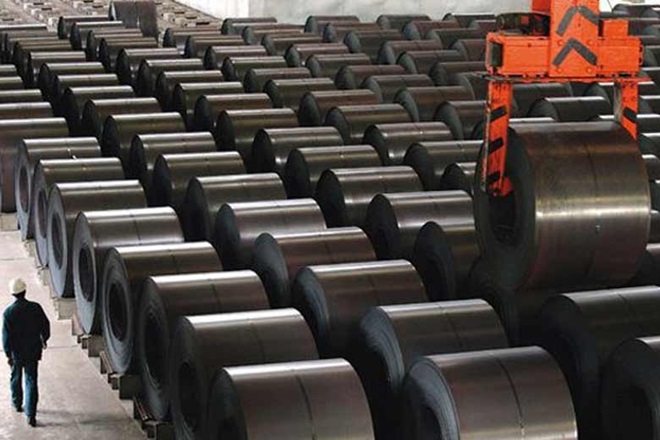What will brighten steel industry fortunes? Here’s a wish list

The steel ministry has recommended to the Prime Minister’s Office (PMO) a host of measures aimed at brightening fortunes of the steel industry. The measures include extension of the minimum import price (MIP) for at least another six months from August 30, debt restructuring and rationalisation of freight rates.
Placing steel in the negative list of the proposed RCEP and CEPAs with Japan and South Korea, creation of a national e-platform for auction of iron ore, supply of the raw material at affordable prices, reservation of coal mines for the steel sector in future auctions and distribution of unallocated coal blocks to steel PSUs also figure in the wish list of the ministry.
The steel sector, hit hard by high input costs and slump in demand, is limping back to normalcy.
With imports down by 29.3% in the first two months of the current fiscal at 1.2 MT over the corresponding period of last fiscal and a significant rise in prices, the steel industry has now been on a sound footing though it is far from being in the pink of health.
The Narendra Singh Tomar-led ministry also intends mandatory sourcing of steel for government and PPP projects from domestic producers in order to generate demand, which witnessed anemic growth last fiscal even as the economy had a robust 7.6% growth.
The ministry also seeks rationalisation of taxes, duties and levies on the raw material and placing higher priority for the steel sector in gas allocation, waiver of import duty on R-LNG and reduction in other taxes and duties.
For the debt-ridden industry, the steel ministry wants banks to support viable projects and suggests lenders to work out suitable arrangements to relieve acute working capital stress, restructuring of debt and conversion of unsecured lines of credit into long-term loans. It also wants the industry’s sustainable debt to be serviced in normal course for viable assets with unsustainable debt, while balance debt could be converted into equity or other suitable instruments. If the debt is unviable, assets could be sold to asset restructuring companies.
The ministry also wants the government to review the proposed net present value (NPV) charges on diversion of forest land and the norm that auction to be conducted for mines only after obtaining environment and forest clearances. The ministry also suggested special dispensation for supporting MSMEs engaged in production of steel.
Aiming to build an annual 300 MT steel capacity in the country from around 110 MT now, the ministry wants creation of steel industry clusters in coastal regions and setting up of ultra mega steel plants in resource-rich states and transfer of iron ore through slurry pipelines only. It also wants the slurry pipeline sector to be accorded the infrastructure status.
Sources in the steel ministry said its proposals are likely to be discussed in a meeting at the PMO soon.
Aimed at bailing out the domestic steel industry reeling under severe stress for the last two year due to imports at predatory prices, subdued demand and poor prices; the government in recent past extended a great deal of support to it, starting with raising rate of basic customs on both flat and non-flat steel to 15% from 10% in the Budget for 2016-17.
It had also hiked the import duty in August 2015 on flat steel from 10% to 12.5%, long steel from 7.5% to 10% and semi-finished steel from 7.5% to 10%. The government had also imposed in June 2015 an anti-dumping duty for five years on imports of certain variety of hot-rolled flat products of stainless steel from China ($309 per tonne), Korea ($180 per tonne) and Malaysia ($316 per tonne).
Further, the government imposed a safeguard duty of 20% in March 2016 on hot-rolled flat products of non-alloy and other alloy steel, on coils of width of 600 mm or more, and MIP on 173 steel products in February this year for six months in the range of $341 to $752 per tonne.